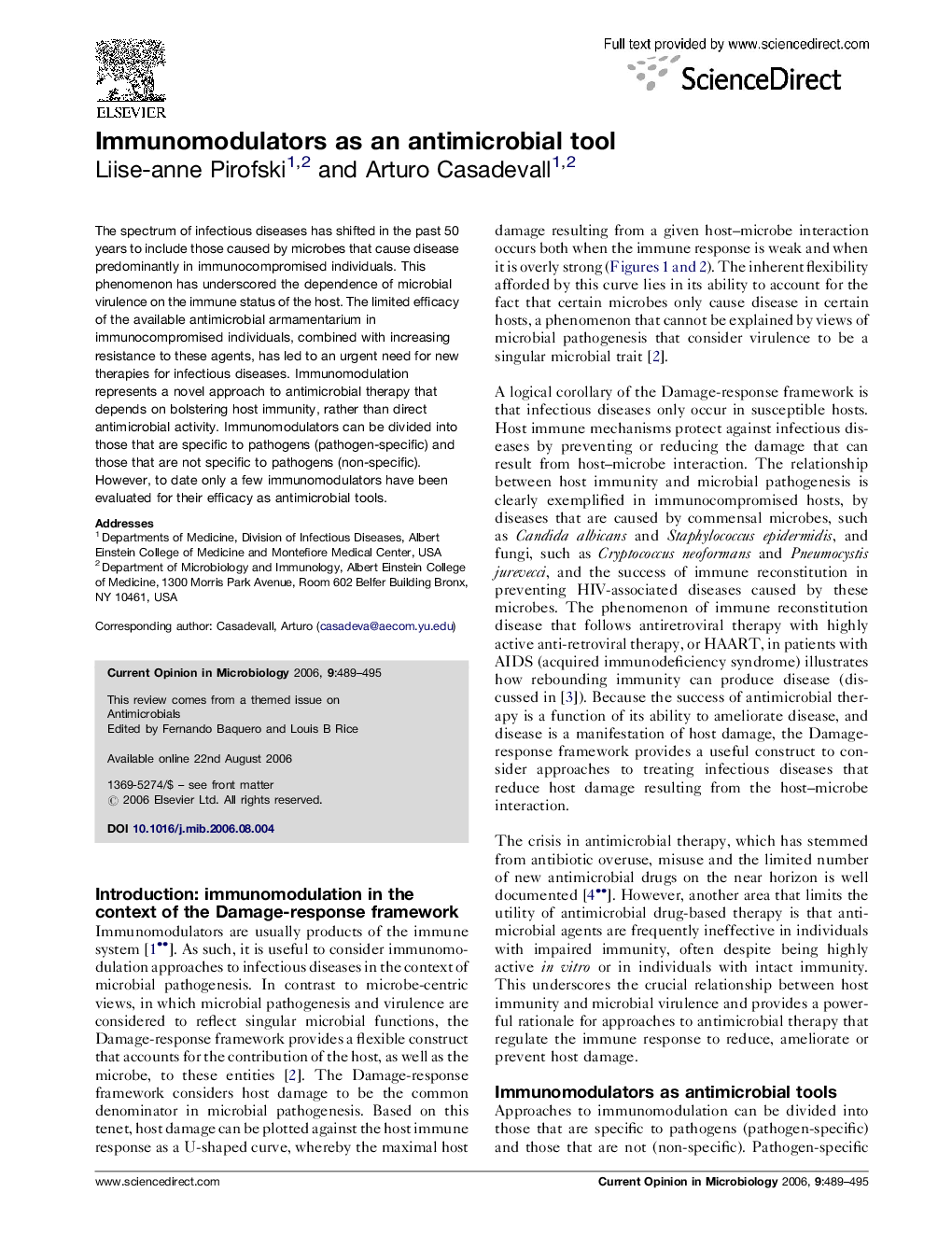| کد مقاله | کد نشریه | سال انتشار | مقاله انگلیسی | نسخه تمام متن |
|---|---|---|---|---|
| 3399544 | 1222527 | 2006 | 7 صفحه PDF | دانلود رایگان |

The spectrum of infectious diseases has shifted in the past 50 years to include those caused by microbes that cause disease predominantly in immunocompromised individuals. This phenomenon has underscored the dependence of microbial virulence on the immune status of the host. The limited efficacy of the available antimicrobial armamentarium in immunocompromised individuals, combined with increasing resistance to these agents, has led to an urgent need for new therapies for infectious diseases. Immunomodulation represents a novel approach to antimicrobial therapy that depends on bolstering host immunity, rather than direct antimicrobial activity. Immunomodulators can be divided into those that are specific to pathogens (pathogen-specific) and those that are not specific to pathogens (non-specific). However, to date only a few immunomodulators have been evaluated for their efficacy as antimicrobial tools.
Journal: Current Opinion in Microbiology - Volume 9, Issue 5, October 2006, Pages 489–495